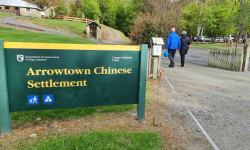
Here are seven habits of highly effective church overseas mission teams—check out how well your team is doing.
- They promote vision and purpose.
- Those involved in mission are called by God as he provides vision and purpose for their lives. A central role of a church’s overseas mission team is to sow the seeds of mission into the lives of individuals that will enable them to recognise and respond to that call.
- They create a strategy.
- Mission never just happens. It grows out of a well‑thought-out mission programme that includes planned and promoted events, trips, appeals, speakers and regular communication. Only by having an intentional plan does a church gain mission momentum.
- They focus on specific workers and projects.
- A shotgun approach to mission support never works. Focus your efforts on promoting specific overseas mission workers and projects that people can relate to and support.
- They communicate the mission and its need.
- Your mission strategy needs a communication plan. This may include: weekly newsletter slots, a mission focus during the church service, a regular prayer meeting or email prayer letter. Consistent communication is vital for promoting missions in your church.
- They are upfront about money.
- It takes money to achieve mission goals. Effective overseas mission teams believe in their mission goals and are courageous enough to ask for the funding to achieve it. Be bold and remember there are people in every congregation whose spiritual gift is giving.
- They celebrate goals achieved.
- The completion of a project, the return of an overseas worker, a first-time declaration of faith—these and other things should be celebrated as we see God blessing the work we are supporting.
- They remember that this is God’s work.
- In all we do, remember, mission is God’s work. We do all we can to plan and pray our goals into being, but he has the ultimate word.
Read our previous helpful articles about church mission teams:
- Setting up a church missions programme
- Six roles of your church missions committee


